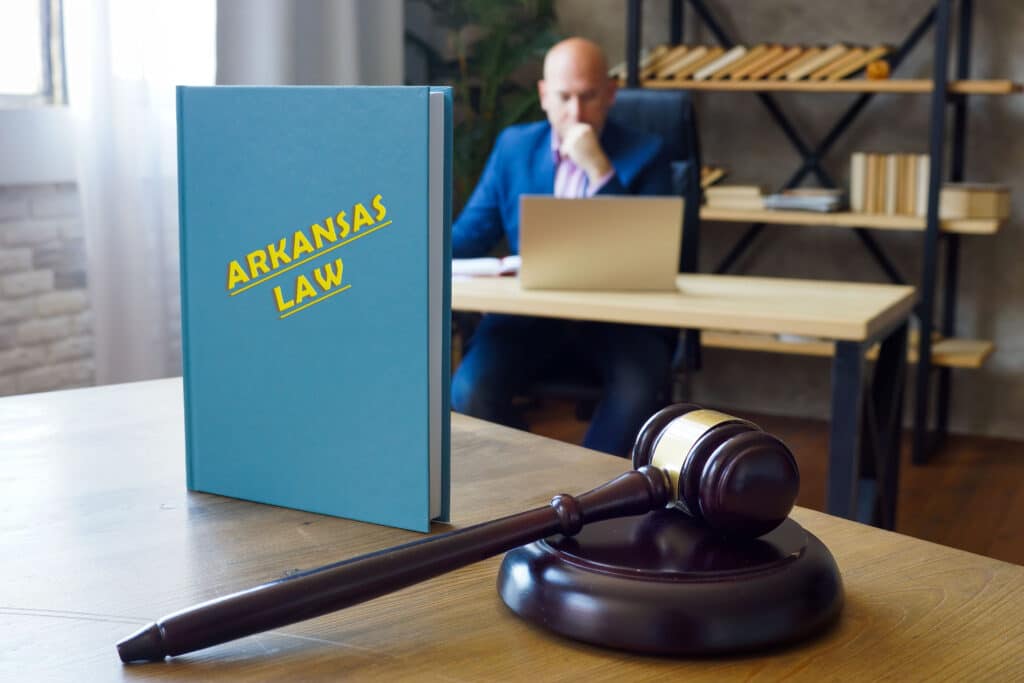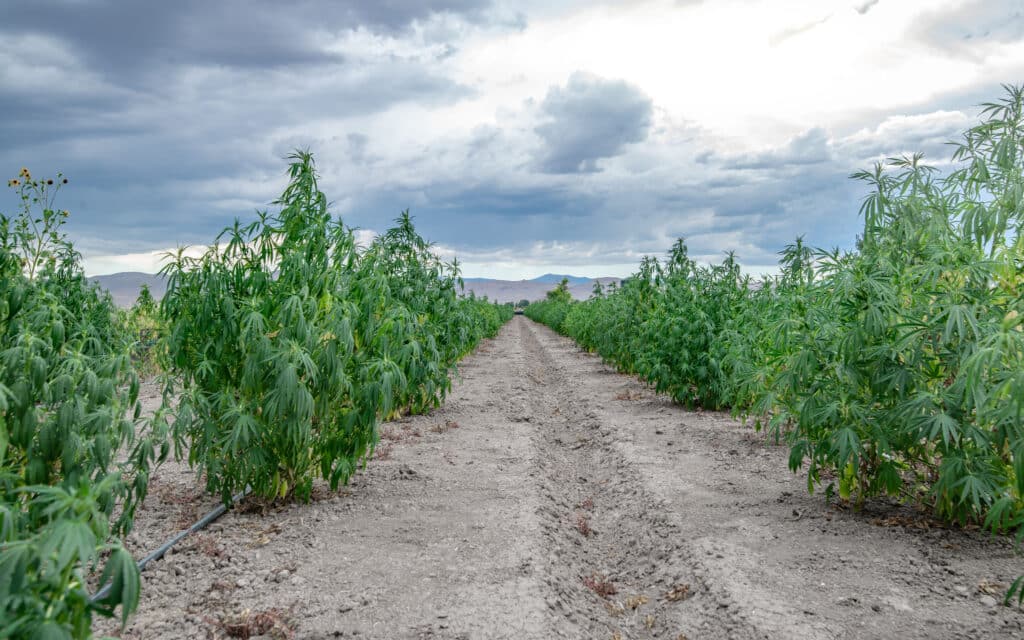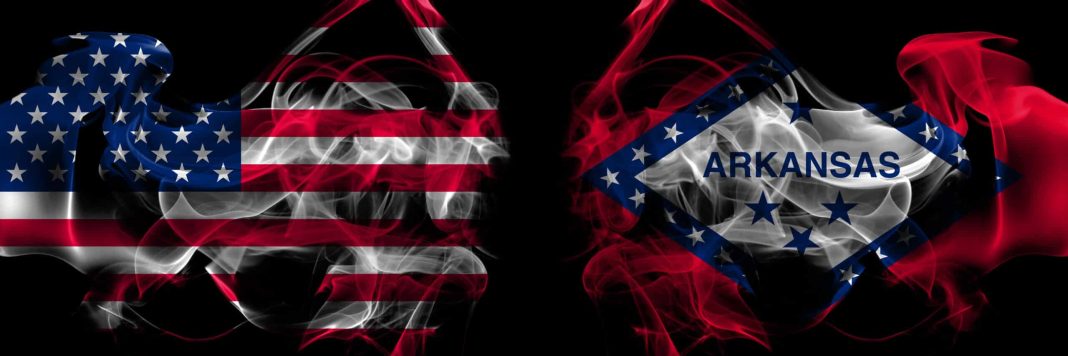Arkansas recently passed legislation to ban cannabis compound delta-8, and other compounds; even when derived from hemp. This led to controversy due to the 2018 Farm Bill, which now involves federal courts. Did Arkansas go too far by including compounds derived from hemp? Read on for more info on this story.
Arkansas ban on hemp-derived delta-8
The current controversy in Arkansas stems from a bill (Act 629) that was signed by Governor Sarah Huckabee Sanders on April 11th of this year. The law is aimed at taming the growing illicit cannabinoids market; by instituting a ban on the production, sale, possession, and transfer of any products with compounds like delta-8, delta-9, delta-10, and so on. The state rescheduled these compounds to Schedule IV, which is the same for standard cannabis. Basically the ban is on anything potentially intoxicating.
According to the legislators who supported the legislation, the ban is necessary because of unregulated stores that sell unregulated products, without checking IDs. There is a logic point, of course; that these stores already function outside of regulation, so instituting regulation isn’t likely to help. I suppose it gives backing for raids, which must be the primary reason for passing such legislation anywhere it does pass…as otherwise it would be expecting non tax-paying businesses, to care about something they don’t care about.
Regardless of the missed logic, the law passed, was signed by the governor in April, and set to go into effect on August 1st. A day before it was scheduled to do so, four lawsuits dropped on the state, by hemp product makers. The four producers are: Bio Gen, out of Fayetteville, Arkansas; Greenbrier, Arkansas’s Drippers Vape & Hemp Relief; Hometown Hero CBD from Austin, Texas; and Smoker Friendly out of Boulder, Colorado.
The lawsuits claim that Arkansas’s Act 629, is in violation of the 2018 US Farm Bill, aka the Federal Agriculture Improvement Act of 2018; which legalized industrial hemp, and gave it a new definition that legally separates it from marijuana. The plaintiffs also argue that the law gets in the way of their industry and livelihood, and that it’s in violation of the U.S. Constitution’s commerce and supremacy clauses.
The latter is particularly important as it concerns protections for interstate commerce, and those tasked with bringing products over state lines. This law, according to plaintiff attorney Abtin Mehdizadegan, can now mean a person can face “criminal sanction for products now deemed illegal despite what the federal law says,” according to a thv11 article.
Arkansas defense for delta-8 ban
The 2018 US Farm Bill is a piece of federal legislation that legalized the production, sale, possession, and use of hemp products. It does not legalize any specific hemp or hemp-derived products for medical or other therapeutic use, but it doesn’t specifically disallow them either, creating a little gray area. Add onto that, that most products like delta-8 require some amount of synthetic processing, and the reality becomes that it’s not exactly a legal market.
Having said that, this is not Arkansas’s excuse exactly. The ban is not specifically about synthetics, though the topic is mentioned. Griffin stated “Arkansas recognizes that industrial hemp is a valuable commodity when cultivated as intended. Act 629 does not stifle such production, and instead, protects Arkansas from the adulterated products that result from chemical synthesis.”
The problem with what Arkansas did, is that it went beyond synthetics. It’s one thing to ban the compounds if they come from a marijuana plant, or to tighten the restriction on synthetic processes. It’s even within the limits of legality to really go hard on the .3% THC separating line. But what Arkansas did, is write off tons of products, that if made the correct way, are legal according to US government law. Or at the very least, not illegal. However, since the US government didn’t officially legalize specific products; this case has the potential to put the federal government in quite an odd position.
Arkansas’s Attorney General possibly dug the state in deeper, by actually using the line that the ban should stay, because it was instituted by the state, and that state law wins out over federal law. I repeat that this argument was put forth by Attorney General Tim Griffin in court, according to MJBizDaily.

Griffins is referring to the idea that if something isn’t constitutionally clear, that it can go in either direction; but at no point has this ever meant that a state automatically wins over the federal body. State cannabis legalization measures are based on the lack of constitutional finality on the subject; they did not simply go through because they trump federal policy.
On August 8th, Griffin asked U.S. District Court Judge Billy Roy Wilson to dismiss the lawsuit, in which he made a cheap shot at the plaintiffs for not being of decent standing, and said they didn’t show irreversible harm from the law (which is too newly enacted for such proofs). The case was not dropped; and currently no hearings are scheduled. One could ask what Griffin is really after in this, and what he thinks will really happen. So far, he’s trying to argue that states rights should override federal laws, and he’s been wildly insulting to the plaintiffs in the case.
The only thing Arkansas has to go on for this law, is a stated fear of children getting high. This excuse is made all the time, even while beer cans continue to look like soda, and are sold everywhere. No one dies from cannabis products, with the exception of a few cases where bad additives were used. People do die from opioids, and guess what looks like a little piece of candy… a cute little yellow pill. That the new Arkansas bill says there should be a state of emergency over cannabis products, is an insult to those dealing with real drug danger; like opioids, or alcohol, or cigarette damage.
The case against Arkansas
The case against Arkansas regarding the delta-8 ban, involves several companies, who are together now suing the state. This creates an interesting conundrum for the US government, which they are appealing to. If the plaintiffs get a positive ruling by the court, it would make a ruling on overall legality of certain cannabis products, at least to a degree. This also happened recently when a federal court validated delta-8 products as having a valid trademark, something that an illegal product can’t have.
The federal government has three options. It can uphold its own laws which legalized hemp and hemp-derived compounds. This would work to legalize delta-8 THC, and the other cannabinoids, so long as requirements like not being synthetic, are met. Or, it has the choice of backing Arkansas, in which case it undermines its own laws. Last, it can drop the case, and make no judgement at all; although this too makes a statement in that Arkansas is specifically touting its supremacy over federal law. Really, its very much a catch-22 for the feds.
Arkansas is not the first state to ban compounds like delta-8 THC. Several states have moved to do such things, some with general bans on cannabis in general, and some that have legal markets. Perhaps the biggest issue with what Arkansas did, is that it made the ban without a stipulation for synthetic processing. It just went ahead and banned any of these compounds if they come from hemp, with little-to-no thought about the 2018 Farm Bill, and what it allows.

Maybe this case is just a right place at the right time situation. And maybe it goes to show that how a state writes its legislation is important. Overstepping happens, even with legislators trained on writing laws. That, and ego gets involved. Regardless of whether Griffin is agreed with or not on certain points, he was divisive and unnecessarily mean about the plaintiffs in the case; and that is a highly unprofessional, ego-motivated move. And that doesn’t say much for Arkansas right now.
Conclusion
This is certainly a case to watch, because it’s one of those cases that comes along at the right time. The federal government must now make a decision regarding the validity of the Arkansas ban on cannabinoids like delta-8. And in doing so, that decision might force a legal reckoning for certain products. Even throwing out the case makes a statement at this point, as it makes it look like the federal government can’t back up its own laws.
As a final note, I cannot find so much as one place where it says the federal court this case is filed in. This is a bit odd as all articles thus far speak of a federal case, yet there is not one document related. Perhaps the case is private. I note here that I don’t like situations where I’m passing on information that I cannot verify.
Hello and welcome you cannabis-supporting readers, you! We appreciate you stopping by our humble publication, Cannadelics.com, where we report on the most interesting stories in the current cannabis and hallucinogen spaces. Come by frequently to catch up on all the updates; and sign up for our Cannadelics Weekly Newsletter; so you’re always on top of what’s going on.





